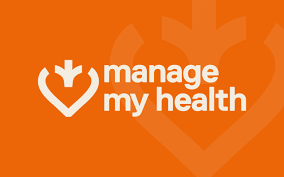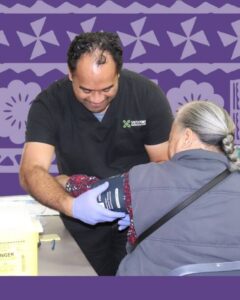Mpox, also called monkeypox, is a virus from the same family as smallpox. While it often goes away on its own, it can be uncomfortable and, in rare cases, cause serious problems. Learning how it spreads, spotting symptoms, and knowing how to prevent it are key to keeping it under control.
How does Mpox spread?
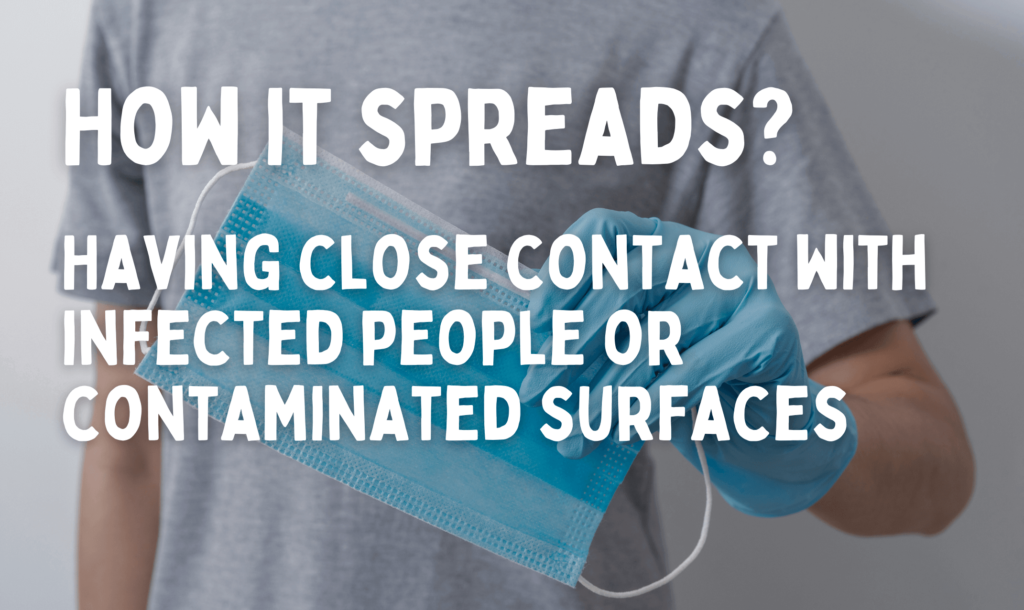
Mpox spreads through close contact with someone infected. It can be passed by:
- Direct Contact: Touching rashes or sores on the skin.
- Body Fluids: Transmission through saliva, respiratory droplets, or fluids like blood.
- Contaminated Items: Using shared bedding, towels, or clothing from an infected person.
- Respiratory Droplets: Although less common, it can spread through droplets during prolonged close contact.
During the 2022 outbreak, most cases came from close contact, including sexual contact, but anyone can catch it if exposed. Mpox doesn’t spread as easily as COVID-19, but close contact increases the risk
Symptoms of Mpox
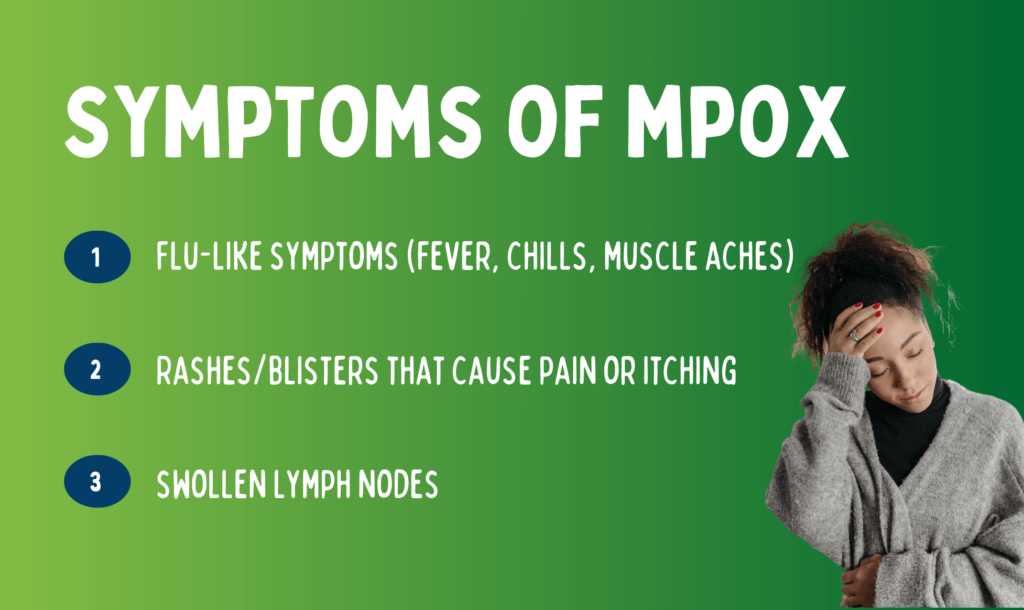
Symptoms usually appear 1-2 weeks after exposure, but can take up to 21 days. The illness goes through these stages:
Early Symptoms (Flu-like): Before the rash, people may have:
- Flu-like symptoms (fever, chills, muscle aches, fatigue)
- Rashes/blisters that cause pain or itching
- Swollen lymph nodes
Rash: The rash is a key sign of mpox and usually shows up a few days after flu-like symptoms. It changes in several stages:
- Flat spots: The rash begins as flat, discolored spots on the face and may spread to other areas like the hands, feet, chest, and genitals.
- Raised Bumps: These flat spots turn into raised bumps, known as papules. The bumps are firm and slightly elevated.
- Blisters: The papules then develop into fluid-filled blisters, called vesicles. These blisters may be clear or cloudy.
- Pus-Filled Bumps: As the blisters mature, they fill with pus and become pustules. These bumps are round and have a thick, yellowish-white fluid inside.
- Scabs: The pustules eventually dry out and form scabs. The scabs fall off over time, and the skin underneath starts to heal.
- Healing: After the scabs fall off, the skin may look a bit different for a while but will gradually return to normal.
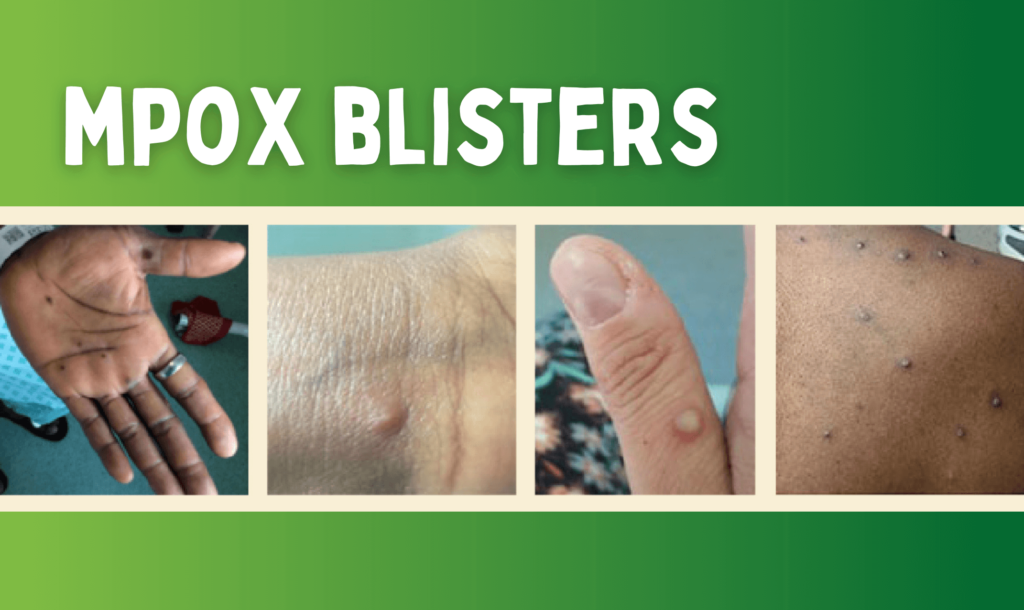
Sometimes, the rash may be limited to certain areas like the genitals or mouth, and may appear as a few lesions.
Other Symptoms:
- Sore throat
- Cough and congestion
- Eye pain or redness
- Rectal pain or bleeding
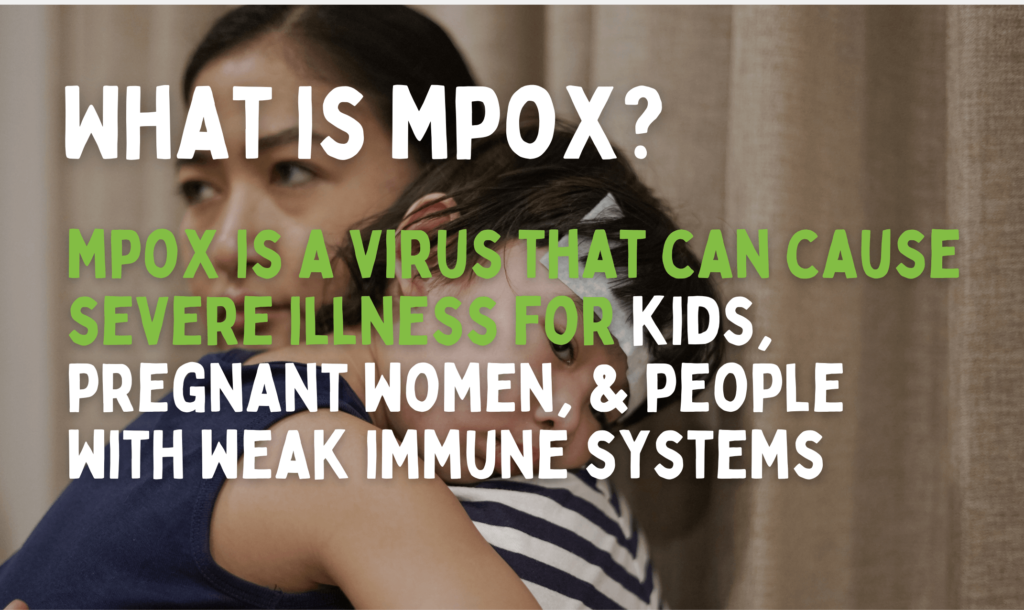
Who is at risk?
Certain people are more likely to have severe symptoms:
- Young Children: Especially those under 5.
- Pregnant Women: Can face complications during pregnancy.
- Immunocompromised Individuals: Those with weakened immune systems, such as people undergoing cancer treatment.
However, individuals with HIV on treatment are not considered immunocompromised in this context.
Managing Complications
While most cases are mild, mpox can lead to:
- Severe Rectal Pain: Pain and bleeding in the rectal area.
- Cellulitis: A bacterial skin infection around lesions.
- Keratitis: Inflammation of the cornea, which can affect vision.
While severe cases are rare, early detection and seeking medical advice can help prevent complications.
Prevention Tips
To prevent mpox, follow these tips:
- Avoid close contact with anyone who has symptoms or a rash.
- Practice good hygiene: Wash hands often with soap and water or use hand sanitizer.
- Avoid shared items: Don’t use bedding, towels, or clothing from someone infected.
- Monitor your health: If you feel sick or notice a rash, isolate yourself and get medical help.
Mpox is not usually life-threatening but needs attention. By knowing how it spreads, recognizing symptoms, and following prevention guidelines, you can help stop its spread. Stay informed, keep up with good hygiene, and avoid close contact with infected people.
More resources
For more information, visit the official Health NZ website on Mpox.
The Healthify website also has some great information and resources.
Visit our contact page if you would like to reach out to our team.
